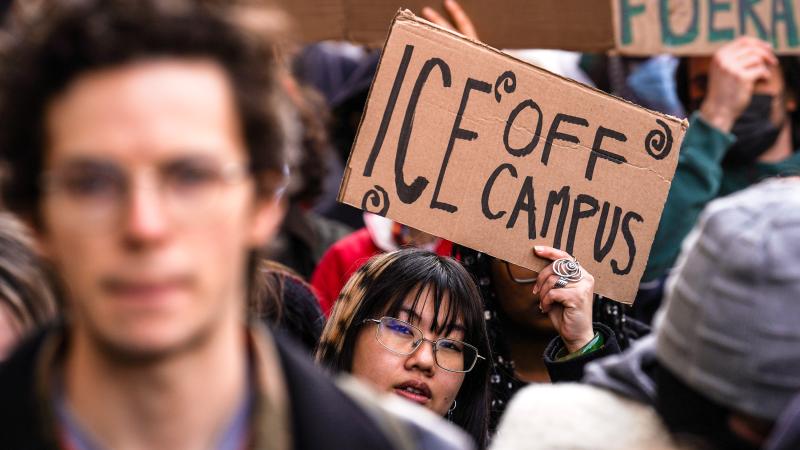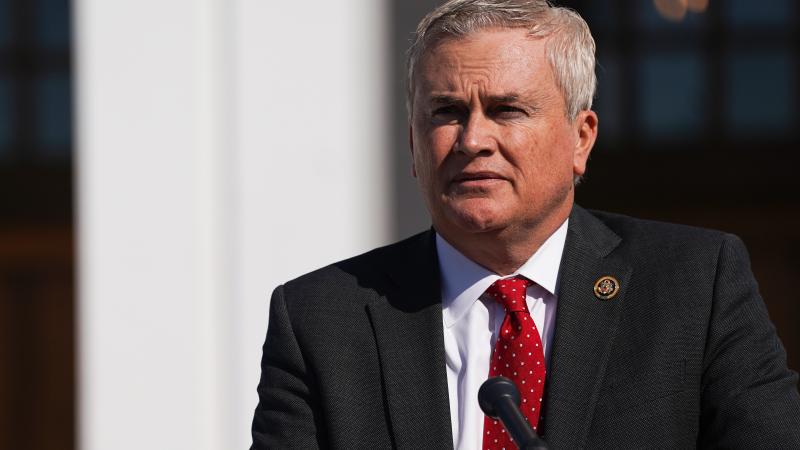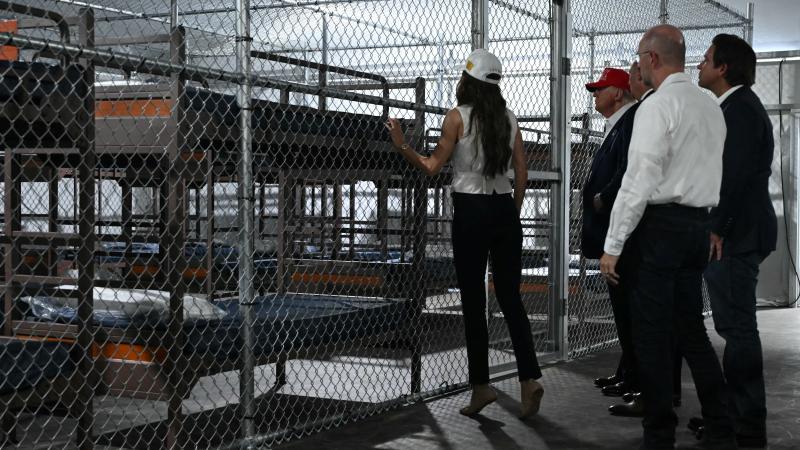School choice activists upset COVID-19 stimulus bans governors from funding vouchers
'Ultimately, the federal Democratic lawmakers in the House were completely in the grips of the teachers' unions and the superintendents' lobbyists,' -Tommy Schultz, American Federation for Children
School choice advocates are upset that the new stimulus package adopted by Congress provides $54 billion for K-12 schools that governors are prohibited spending for "vouchers, tuition tax credit programs, education savings accounts, scholarship programs, or tuition assistance programs for elementary and secondary education."
Studies, including one highlighted by the Brookings Institution, show that minority parents, including black and Latino Democrats, are more supportive of school choice than white Democrats.
The Governor's Emergency Education Relief (GEER) fund was created in March with the COVID-19 CARES Act, the earlier coronavirus stimulus bill. Some governors used GEER funding to begin or widen school choice programs.
“Ultimately, the federal Democratic lawmakers in the House were completely in the grips of the teachers' unions and the superintendents' lobbyists,” Tommy Schultz, vice president of communications and marketing at the American Federation for Children, told Just the News on Wednesday. “Those special interest groups maneuvered in every way possible to make sure that families wouldn't be given funding to control and customize their children's education amidst the disruptions from the school lockdowns. Thus, with the House controlling this push, led by a Speaker who ironically went to private schools and sent her children to private schools, it's no surprise that it ended up restricting governors' abilities to utilize funding for creative educational options.”
The Federation noted in a statement Tuesday that some of the $54 billion-- $2.75 billion--was set aside for non-public schools that previously participated in the Paycheck Protection Program. And though that $2.75 billion for is only 5 percent of what public schools will receive, even though non-public schools educate 10 percent of K-12 students, the Federation still called the set aside and “unprecedented and a major win for non-public schools and families.”
“At certain points, there wasn't any funding set aside for non-public schools, or there were other unfavorable and uneven restrictions for families and schools,” Schultz said. “Given that at least there was some funding set aside for education, both for public and non-public schools, the bigger ticket items in the rest of the bill consumed most of the negotiations.”
President Trump on Tuesday evening issued a veto threat of the coronavirus stimulus bill, calling it a “disgrace,” but his video remarks in opposition to the bill did not mention education. Trump said the bill was unfocused and loaded with foreign aid and unrelated expenses that go far beyond a narrow focus on relief for pandemic-related pain.
“The president's message may have extended the window for tweaks so we'll see what might happen in the next 24 hours,” Schultz said Wednesday afternoon.
Ray Domanico, senior fellow and director of Education Policy and the Manhattan Institute for Policy Research, told Just the News on Wednesday that “The Democratic Party’s opposition to school choice and religious schools apparently knows no bounds. In these extraordinary times, many private and religious schools have stepped up to provide high quality instruction while too many public school districts appear to be losing students in record numbers due to uneven responses to the pandemic.”
Max Eden, senior fellow at the Manhattan Institute for Policy Research said “Democrats dug in their heels,” to prevent any voucher funding, and that Republicans didn’t push back enough.
“There long has been a profound asymmetry in Congress on education: Democrats care immensely about it, whereas for Republicans it's an afterthought,” Eden told Just the News on Wednesday. “Hill veterans I consulted with were still, however, frankly surprised at just how strongly Democrats dug in their heels to prevent money from flowing to parents and private schools in this bill. So, this is not a surprising development, but it's still terribly disappointing - especially as a coda to an administration that had repeatedly promised to use the levers of federal power to expand school choice.”
Robert Enlow, President and CEO of EdChoice, told Just the News that although there is some small support for private schools in the bill, it also blocks the ability of state and local officials to fund families directly.
“The pandemic affected all families, not just those using the district school system, so it's unfortunate that Congress continues to put politics and ideology before children,” Enlow said. “Emergency aid should follow students to the learning environments that are providing for their needs during these trying times.














